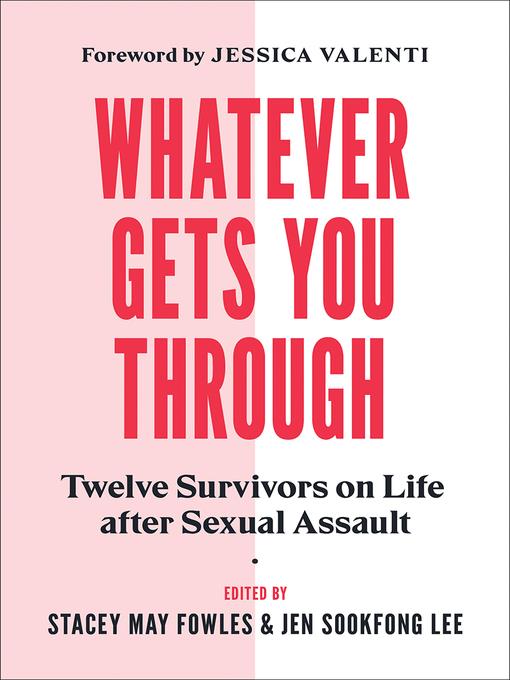
Whatever Gets You Through
Twelve Survivors on Life after Sexual Assault
- اطلاعات
- نقد و بررسی
- دیدگاه کاربران
نقد و بررسی

March 11, 2019
This powerful, difficult collection of visceral but often exquisitely constructed essays focuses on the “day-to-day realities of trauma” and challenges even readers familiar with sexual violence narratives in their assumptions about what survivors need. Juliane Okot Bitek’s “Skinny Days,” for example, intersperses opening lines of administrative emails with recollections of an imagined conversation with her dead father, demonstrating how reminders of sexual trauma—she’d been date raped and abused by her husband—can be triggered by daily life. Several essays fit the survivor narrative of women reclaiming the ownership and strength of their bodies through physical activities such as kickboxing and hockey, or finding beauty in artistic pursuits. But others, such as Kai Cheng Thom’s “The Salvation in My Sickness,” harshly criticize what the author sees as the feminist culture-approved stereotype of the “good survivor” who performatively tells her story and pursues “getting better” in exchange for validation and care. Several essayists answer the question “What gets you through?” by writing frankly about coping strategies that range from intentional forgetting to kinky trauma reenactments to keeping silent. These thoughtful writers elevate resilience and endurance above a sanitized, oversimplified recovery narrative, and though the result can feel hard to read, it will speak deeply to readers open to understanding the complexity of trauma.

Starred review from March 15, 2019
In this unforgettable, knockout collection, a dozen masterful essayists meditate on the work of surviving sexual assault. The authors represent a myriad of identities, from kinky queer, to Native trans, to Asian trans, to differently abled, to neurodivergent, and beyond. Their essays break away from the trend of recounting trauma?many contributors explain that writing about their wounds only serves to open them again?and are instead devoted to all of the different ways survivors heal. For one writer, it's playing ice hockey. For another, it meant finding a sexual partner willing to recreate her trauma in order to minimize the power of physical triggers. The authors present difficult truths often overlooked by popular narratives of survivordom, such as feeling abandoned by parents who didn't protect them or responsible for the friends they themselves couldn't protect. Most poignantly, they write of their traumas as complicated pieces of themselves, not necessarily something to be eradicated. My trauma is an opera, a gorgeous and tough dress made out of my best scars, a seed library, a Gutenberg Bible, a thunderstorm to climb and buck in a small plane, a mountain range, a supernova to map, writes Leah Lakshmi Piepzna-Samarasinha. These writers' prose and generosity are nothing short of profound.(Reprinted with permission of Booklist, copyright 2019, American Library Association.)




دیدگاه کاربران